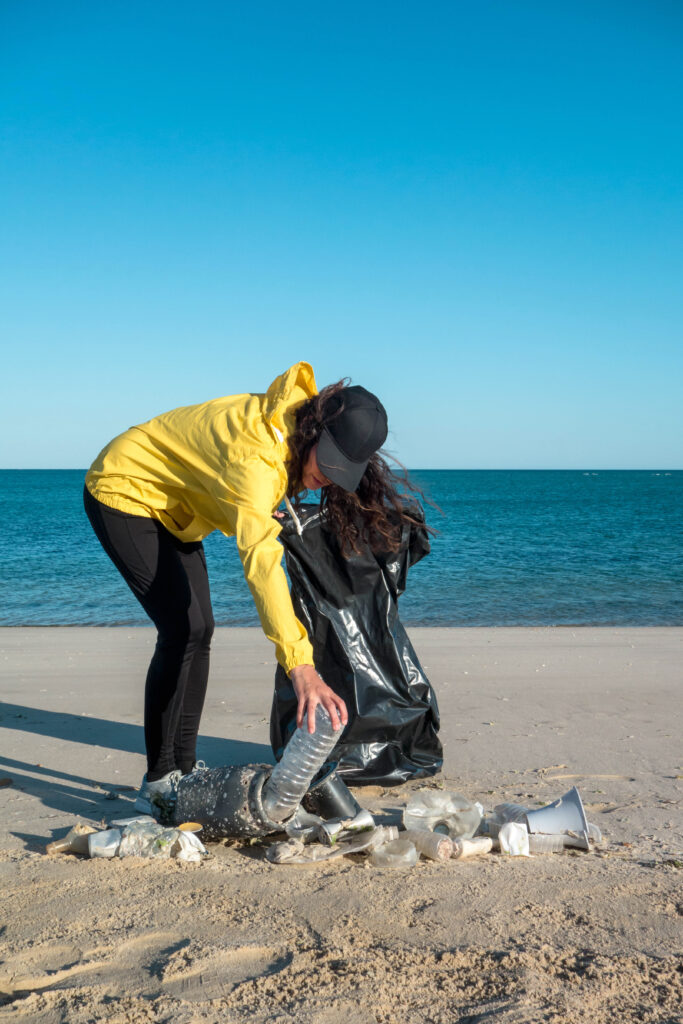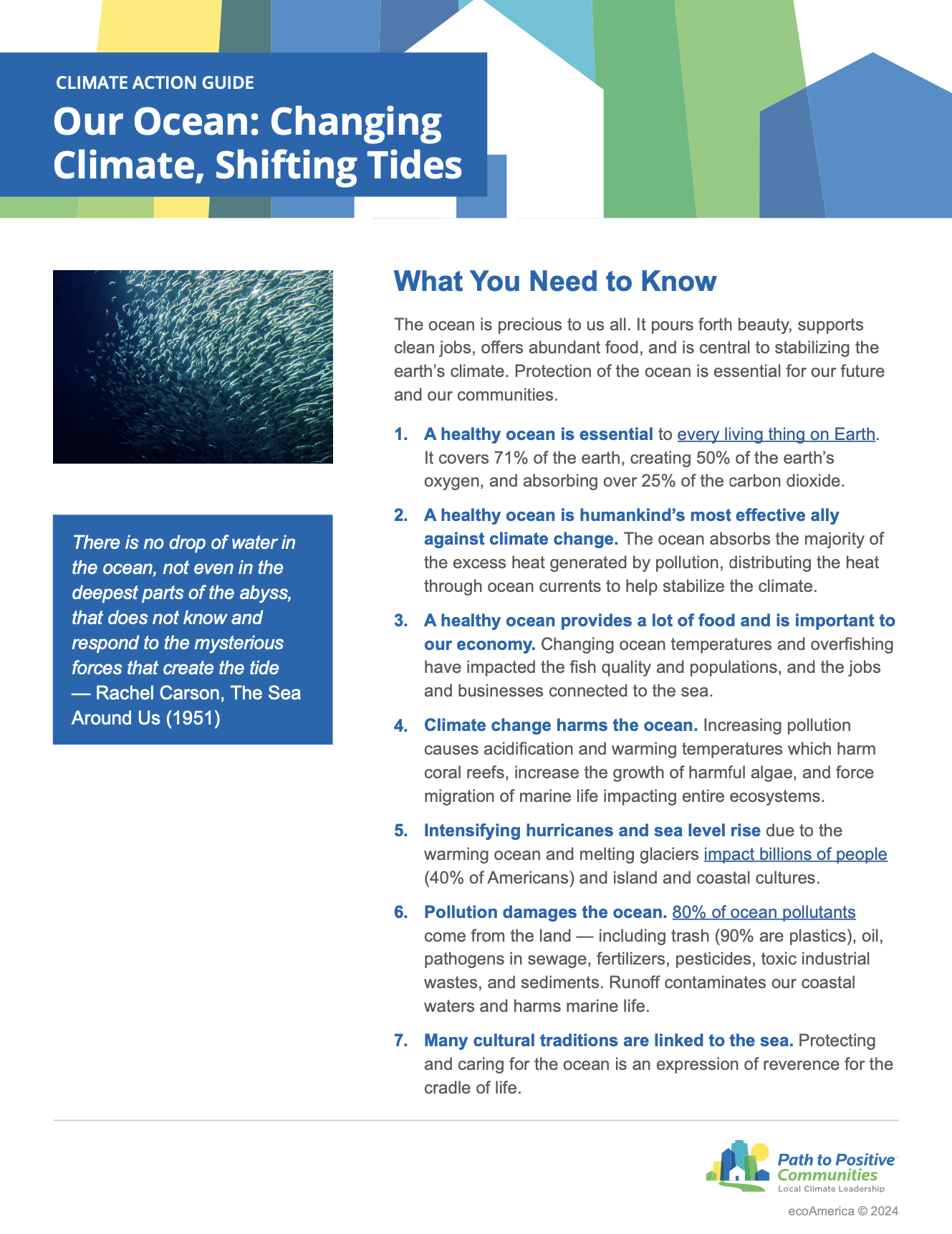
What You Need To Know
The ocean is precious to us all. It pours forth beauty, supports clean jobs, offers abundant food, and is central to stabilizing the earth’s climate. Protection of the ocean is essential for our future and our communities.
- A healthy ocean is essential to every living thing on Earth. It covers 71% of the earth, creating 50% of the earth’s oxygen, and absorbing over 25% of the carbon dioxide.
- A healthy ocean is humankind’s most effective ally against climate change. The ocean absorbs the majority of the excess heat generated by pollution, distributing the heat through ocean currents to help stabilize the climate.
- A healthy ocean provides a lot of food and is important to our economy. Changing ocean temperatures and overfishing have impacted the fish quality and populations, and the jobs and businesses connected to the sea.
- Climate change harms the ocean. Increasing pollution causes acidification and warming temperatures which harm coral reefs, increase the growth of harmful algae, and force migration of marine life impacting entire ecosystems.
- Intensifying hurricanes and sea level rise due to the warming ocean and melting glaciers impact billions of people (40% of Americans) and island and coastal cultures.
- Pollution damages the ocean. 80% of ocean pollutants come from the land — including trash (90% are plastics), oil, pathogens in sewage, fertilizers, pesticides, toxic industrial wastes, and sediments. Runoff contaminates our coastal waters and harms marine life.
- Many cultural traditions are linked to the sea. Protecting and caring for the ocean is an expression of reverence for the cradle of life.
What You Need To Do
The ocean is vital for our human communities, important for vast and interconnected ecosystems, and is integrated into our traditions and common histories. The most important thing you can do is to talk with others about the ocean’s connection to our health and the climate. You can start today.
- The most important thing you can do is talk about and advocate for the ocean in your community, on social media, and in sign-on letters. Encourage elected officials to support legislation that maintains and protects the ocean.
- Invite your community to learn more using resources like this Climate Action Sheet and NOAA’s 10 Simple Things guide.
- Enjoy the ocean responsibly. Clean up trash, respect wildlife and signage, and leave spaces better than you found them. Purchase fish that are sustainably caught or harvested.
- Protect all our waterways for a healthier ocean. Dispose of trash properly, encourage plastic-free options, and limit single-use plastics.
- Limit the use of chemicals on lawns and gardens. Look for alternatives to conventional herbicides and pesticides.
- Reduce your energy consumption. Save money by saving energy. When possible purchase electric cars and heat pumps and source electricity from solar, wind, and geothermal to transition away from burning fuels that pollute our air.
- Get involved in hands-on ocean justice work. Participate in a beach cleanup or visit a coastal community to learn more about care for the ocean. Support legislation and programs to protect the ocean and the waterways that connect to it.
We have salt in our blood, in our sweat, in our tears. We are tied to the ocean.
— John F. Kennedy

There is no drop of water in the ocean, not even in the deepest parts of the abyss, that does not know and respond to the mysterious forces that create the tide
— Rachel Carson, The Sea Around Us (1951)

